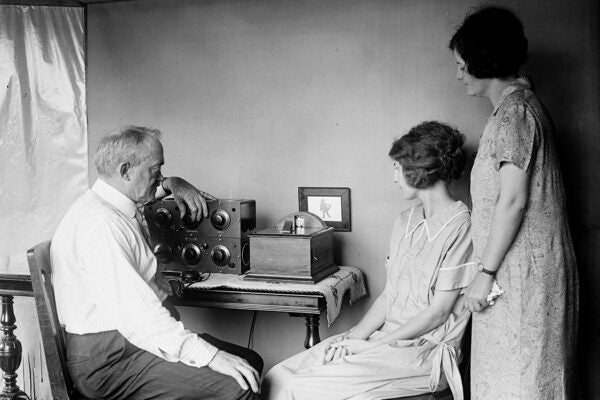Love Is Blind … but Are Your Hormones?
Do women’s attraction to certain faces really change across the menstrual cycle? A long-running theory meets modern data.
Mad Men and Its Obsession with Frenchness
Mad Men’s in-universe fascination with Frenchness was so frequent and important to the plot(s) that it might as well have been a main character.
Phantoscopes, Radiovision, and the Dawn of TV
After creating a projector called the Phantoscope in 1895, C. Francis Jenkins successfully tackled the problem of transmitting motion pictures through radio.
The Ethics of On-Screen Violence in The Sympathizer
Film scholar Sylvia Shin Huey Chong offers a feminist reflection on the theme of rape in Viet Thanh Nguyen’s Pulitzer-winning novel The Sympathizer.
Doctor Who, the Traveling Time Lord
Though they each arrive with an individual sense of humor and fashion, the fifteen Doctors reflect the political and social issues of their respective eras.
The Rise of the LA Suburb in 1960s TV
The shift from city centers to suburbs was reflected in post-World War II television programming.
Empress Matilda, George R. R. Martin’s Muse
Like the fictional character she inspired, Matilda was at the center of a civil war, fighting her own relatives for control of the royal throne.
The Caricature Who Couldn’t Appear on American Born Chinese
The television adaptation of Gene Luen Yang's graphic novel called for significant changes to the character of Chin-Kee.
Should We Expect TV Chefs to Serve “Me on a Plate”?
Asian Americans navigate entrenched attitudes and expectations when it comes to their relationship with food—even while competing on Top Chef.
Girls Gone Greek
The most influential character on Showtime’s Yellowjackets is the one who goes unnamed: Dionysus.









